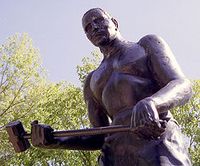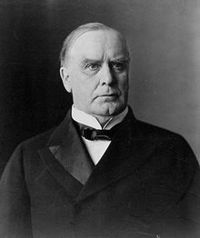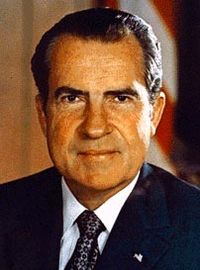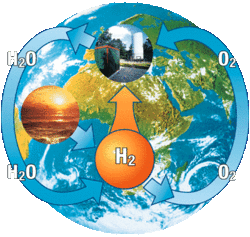Think of this as Volume 16, Number 45 of A-Clue.com, the online newsletter I've written since 1997. Enjoy.

crisis of our time.
The crisis is the War Against Oil, but
it's a crisis that dare not speak its name.
Al Gore spoke its name,
and he was buried for it. Buried by Bush's Supreme Court in 2000, then buried by
ridicule after getting his Oscar for “An Inconvenient Truth.”
This President has tried to approach
things in a different way. Rather than address the
crisis directly, he has sought to make the case instead for the role
of government. He used government to address the financial panic,
with modest success, and he used it to try and address health care
inflation, although success there remains years away. With people
impatient for change they could feel, he needed a break.
Sandy was the break he needed.
As a political bookend, Katrina set
things in motion. Katrina changed the nation in profound ways, ways
we didn't even notice at first. Katrina made us angry, it enraged us.
The non-reaction of the Bush Administration became its unforgiveable
sin – more than Iraq, more even than the financial panic. Katrina,
and New Orleans, became a burning coal in every Democrat's belly.
Never again, we promised ourselves. That fire burned hot in 2006, it
burned hotter in 2008, it burns in my heart today.
It's best summarized here, in the
U2-Green Day video “The Saints are Coming.” It portrays Katrina
as an opportunity to bring our troops home from Iraq to save New
Orleans, something that did not happen.

came. The National Guard was deployed to Hoboken, something that
didn't happen for the Ninth Ward. New Jersey Governor Chris Christie
had his “come to Jesus” moment, and (pun alert) Muhammad came to
the Mountain. The picture of President Obama and Gov. Christie,
Romney's top surrogate, the keynoter of his convention, standing
together and doing their jobs – a job Romney is on record opposing
as a matter of policy – ends the campaign.
As this is written, five days before
the election, it's all over but the counting. Pundits want to believe
the question remains in doubt, but the President has dominated the
early vote, and it's impossible to believe he'll lose the Election
Day vote as overwhelmingly as he must for his present lead to be threatened. Romney's
efforts to hide his remarks on FEMA, to pretend he supported the auto
bailout, are damning to him, and to his party.

matter. Fact is there's a new attitude abroad in the land, created by
events on the ground.
Americans are coming to a consensus, that
government has an essential role in dealing with our problems, that
something is badly wrong, that we all must pull together to create
essential change, and that profit cannot be the only motivator.
All this – all we've seen the last
eight years – has been nothing but fighting alligators. The real job is to
drain the swamp, but we have been obsessed instead with problems that
are smaller in the long run, that are mere symptoms and not the
disease.
You may want to feel depressed about
that, but what my ongoing study of American history over the last eight years has taught me is that this is
always the case. Each of the great crises of American history have
been about economics, about a new abundance trying to emerge from
inside an enforced scarcity. But that is never how things were
portrayed at the time. It's not even how they're portrayed now:
Take the new Spielberg film “Lincoln,”
starring Daniel Day-Lewis. It takes as its text the passage of the
13th Amendment, abolishing slavery, which transformed the
Civil War into a fight for human freedom.

Slavery was
an obsolete economic model, even as the war approached. Machines were
far more productive, and machines needed willing hands to work them,
not enslaved hands. This was evident as far back as the 1840s. This was
the subtext of the “John Henry” story, one of our great American
fables, about a strong black man who drove rail spikes against a
machine until it killed him. But the political system still
guaranteed the continuance of this obsolete economy, it still yoked
the nation to inefficiency.
Ending slavery let the Machine Age move
forward unimpeded. It launched an era of abundance that extended into
the 1890s, when the economic arrangements of that age broke down, and
government was required to develop systems assuring the new national
manufacturers reliable prices for inputs on which they could build the Automotive Age, and a single national market.

crisis, the one I've called the McKinley Crisis. All the struggles of
a generation, from the Mugwumps to Woodrow Wilson, the issue of the
Progressive Era, was aimed less at reining-in business than in
liberating production.
But mass production requires mass consumption,
and policies aimed solely at production can create an economic
collapse unless they're matched by policies aimed at building demand.

call the New Deal. The creation of demand, the orchestration of an
entire economy in the name of a higher good, that was the problem FDR
faced.
It was fascism that became the swamp, not the Depression. The
challenges of that time, the questions that were answered by
the Greatest Generation, were about whether democracy could survive
in a world requiring such mass orchestration, whether freedom could
endure when government's help was needed on both the supply and
demand sides of the economy.
We won that struggle, but manufacturing
faced new limits. It enhanced productivity only arithmetically. The
mass mechanization of America could take us only so far, and as we
approached the limits of what mere machines could do, and pushed
those limits through both of Lyndon Johnson's wars, the Cold War and
the War on Poverty, a new economic crisis came.

answered by politics. It was answered by the microchip, and by
intellectual property which could create an abundance of new value
with ever-smaller relative inputs.
Again, the crisis was over the
alligators, not the swamp. The war was over Vietnam, not Apollo. The
men who created our age – men like Gordon Moore and David Packard –
were Republicans almost to a man. So were Hollywood's business
leaders.
Once their power was unleashed, by policies such as the
“Nixon Shock,” abundance slowly returned. The Apple II and Star
Wars created new values and a new American economy.
All of which led to the existential crisis of
our own time.
The abundance of the Nixon Era naturally flowed upward,
toward those few who were creating most of the value, to people who
weren't really working, but just playing games with money. It was, it
is, a crisis similar in many ways to that faced in the Progressive
Era, 100 years ago.
Government is needed again to break through the
artificial scarcity of commodities, to enlist science and engineering
in a War Against Oil, to break down artificial scarcity and create a
new abundance based on the fact that the Sun shines, the winds blow,
the tides roll, the crops grow, and we live on a molten rock.

the carbon energy cycle destroying our planet with a more
sustainable hydrogen energy cycle is the great task before us. We
have the technology. We can rebuild an economy that's stronger,
faster, more flexible, more resilient, more global, and more
cooperative, one that can take on the real challenge before us, the
fight to save this planet from the virus known as man.
This is the message of Sandy. It was
also the message of Katrina. But only one side heard the Katrina
message. Sandy was a message even Chris Christie could understand.
And the response to that message wasn't in Mitt Romney's hands, it
wasn't something private enterprise alone could deal with.
Now, Barack Obama can lead us in the
great job before us, draining the swamp, winning the War Against Oil,
saving the planet, and creating a new economic abundance for our
children and our grandchildren.
The fifth great crisis in America's history is reaching its climax.












If I were you, I’d add the Nullification Crisis to your list of American Economic Crises, as well as of course the American Revolution. There are of course earlier ones as well–but I won’t get ahead of myself.
Have you ever heard of Strauss & Howe’s Generational theory? What you’ve described fits in with what they’d call the “climaxes of Awakenings and Crises”.
If interested, you can check out the basics of their theory at: fourthturning.com
Because I find your analysis to be quite similar to theirs, albeit with different labeling.
If I were you, I’d add the Nullification Crisis to your list of American Economic Crises, as well as of course the American Revolution. There are of course earlier ones as well–but I won’t get ahead of myself.
Have you ever heard of Strauss & Howe’s Generational theory? What you’ve described fits in with what they’d call the “climaxes of Awakenings and Crises”.
If interested, you can check out the basics of their theory at: fourthturning.com
Because I find your analysis to be quite similar to theirs, albeit with different labeling.